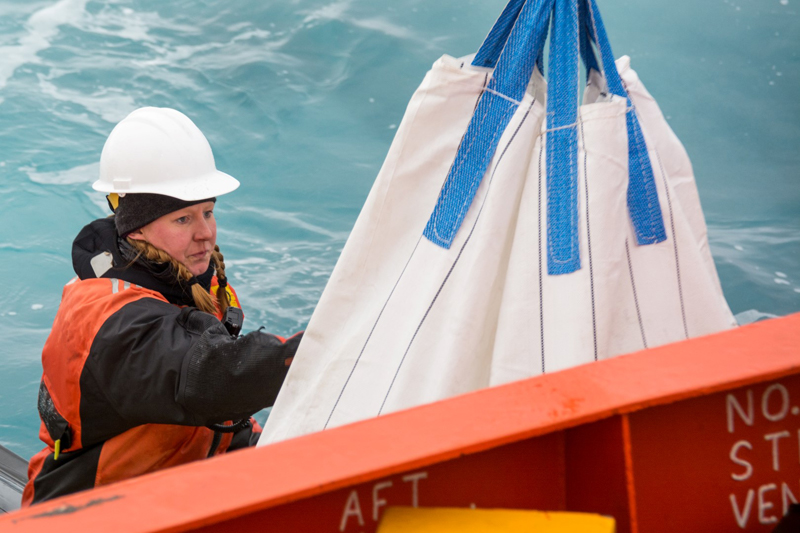
Photo Credit: Mike Lucibella
|
Marine technician Amy Belcher guides a load of supplies onto a small Zodiac raft to deliver to penguin researchers at Cape Shirreff.
|
Podcast: Marine Operations
By Michael Lucibella, Antarctic Sun Editor
Posted May 23, 2018
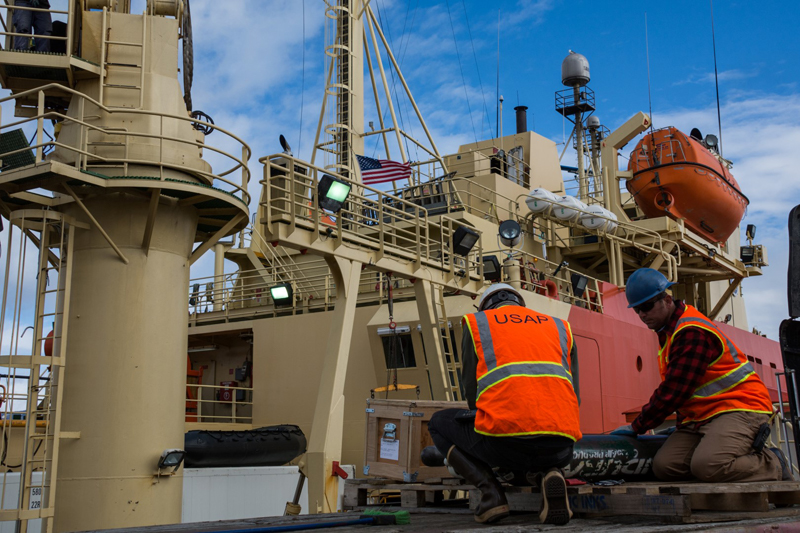
Photo Credit: Mike Lucibella
Before departing port at Punta Arenas Chile, marine techs Dave Moor (right) and Chuck Holloway prepare a condensed gas cylinder for loading onto the research vessel Laurence M. Gould.
In Antarctica, scientists conduct cutting edge research on a harsh and barren continent. It's no easy task, but to help make it happen the U.S. Antarctic Program
employs small army of support staff to get these researchers the supplies they need, transport them to where they need to go and keep them safe throughout.
A lot of the jobs they do are the same that any small town needs to function, often with a specialized twist that comes with working in such a remote place, but
others can be less obvious. The Antarctic Sun Podcast is taking a behind-the-scenes look at the workers and what they do to make science at the bottom of the world
possible.
This Episode: Marine Operations
The U.S. Antarctic Program, operates two research vessels, the Laurence M. Gould and the Nathaniel B. Palmer. The vessels carry scientists and support staff across the Southern Ocean, conducting research and delivering supplies to Palmer Station on the Antarctic Peninsula. On board, the marine projects coordinator and the marine technicians make sure that everything goes smoothly.
On any given cruise there are essentially three divisions of people. The ship’s crew operate the vessels, researchers conducting experiments or traveling to Palmer Station and the marine techs who are there to make sure that the researchers are able to conduct their science.
The four-day voyage from the tip of South America to the Antarctic Peninsula crosses the Drake Passage, what many regard as the worst stretch of ocean in the world. Harsh storms can sweep in unexpectedly, tossing the boats around and sometimes delaying their missions for days at a time. Gusty winds prevent the deployment of instruments while equipment can freeze in the sub-zero temperatures. It’s up to the support staff on board to manage these obstacles and make sure the research is carried out safely and effectively.
Photo Gallery

Photo Credit: Mike Lucibella
Marine projects coordinator Sean Bercaw poses for a photo before helping to load cargo and deliver supplies to penguin researchers at Cape Shirreff.
|
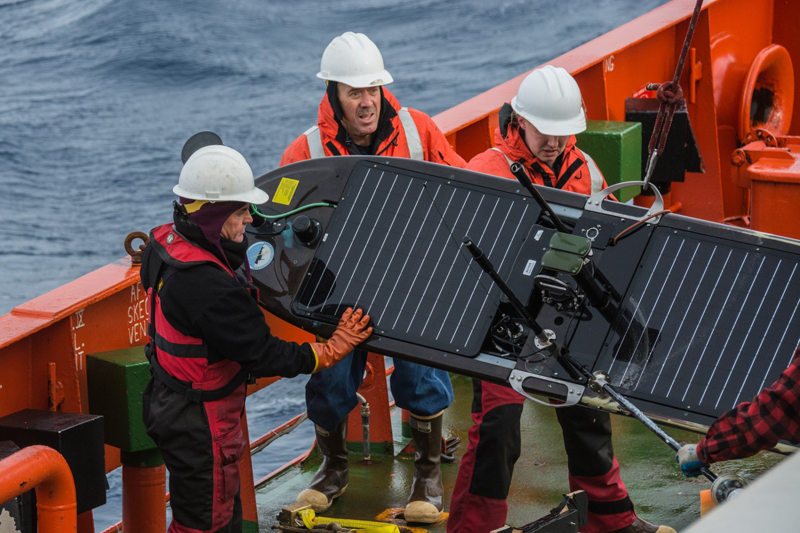
Photo Credit: Mike Lucibella
(Left to right) Chuck Holloway, Sean Bercaw and Amy Belcher unload a floating wave glider after recovering it in the Drake Passage.
|
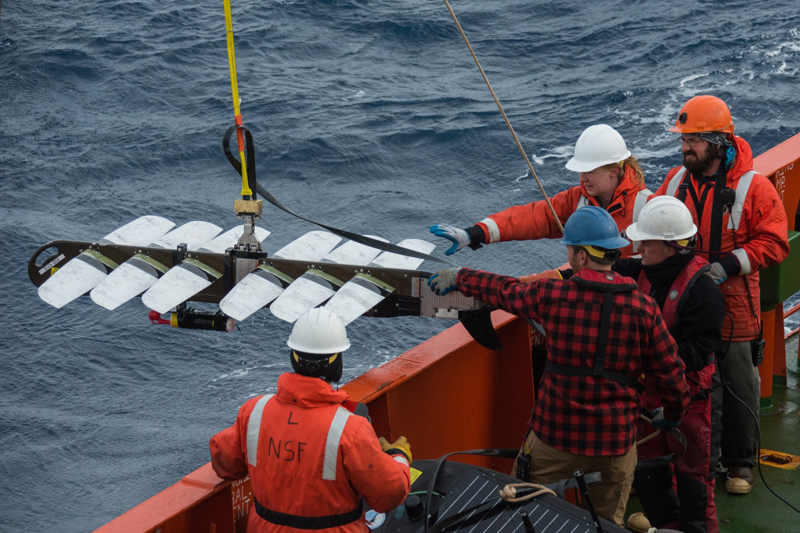
Photo Credit: Mike Lucibella
(Left to right) Sean Bercaw, Dave Moore, Amy Belcher, Chuck Holloway and Matt Lewis help to pull a wave glider’s propulsion system out of the ocean after recovering it in the Drake Passage.
|
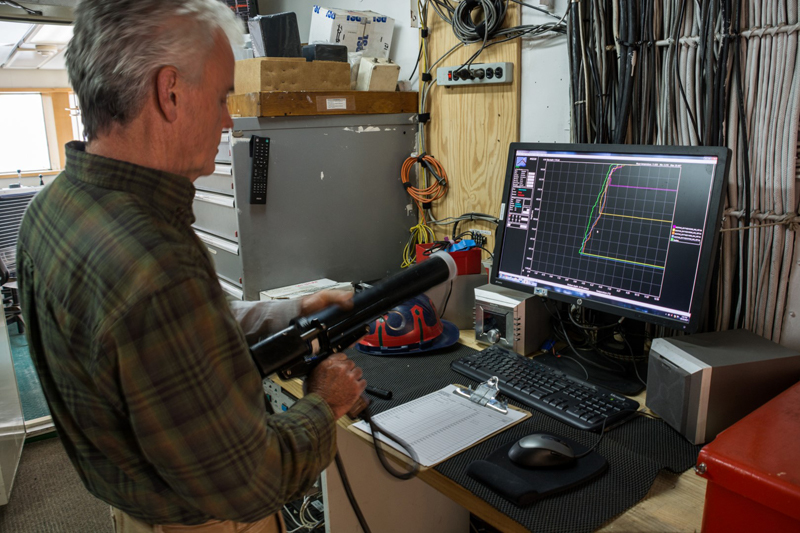
Photo Credit: Mike Lucibella
Marine Tech Chuck Holloway prepares an expendable bathythermograph to measure the ocean’s temperature while crossing the Drake Passage.
|
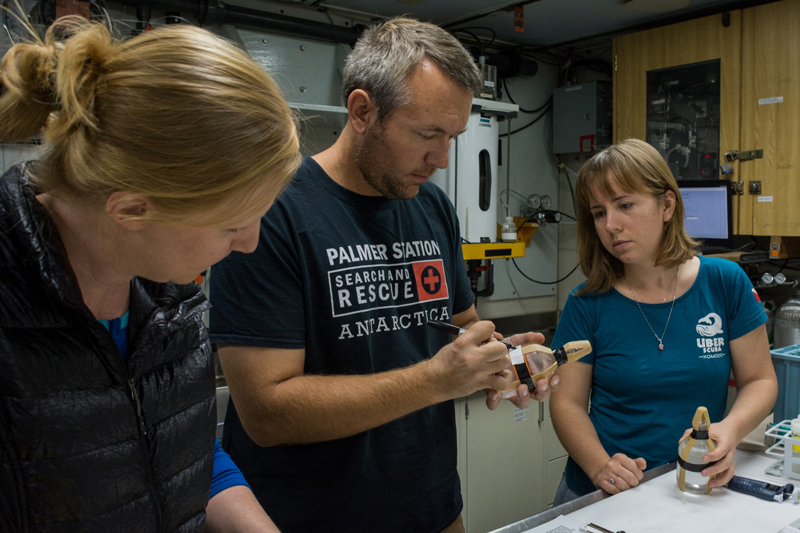
Photo Credit: Mike Lucibella
(Left to right) Marine techs Amy Belcher and Dave Moore with the help of grantee Leigh West, prepare a water sample taken in the Drake Passage for researchers back in the United States.
|
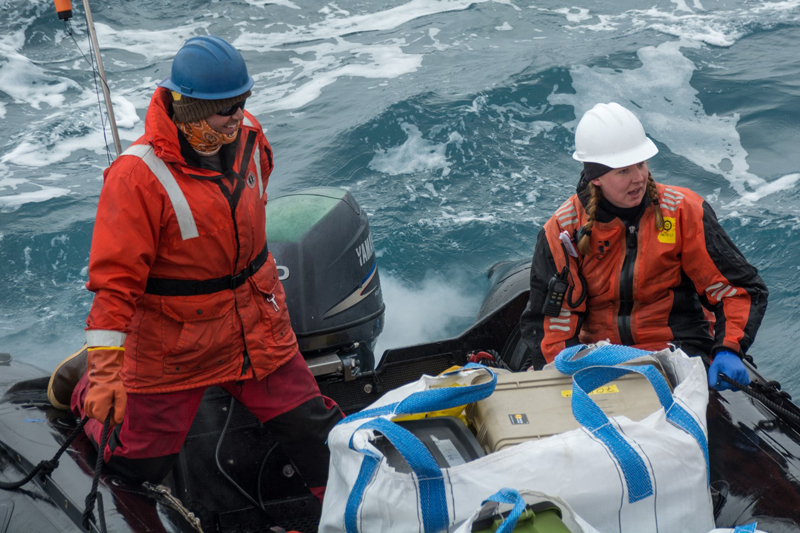
Photo Credit: Mike Lucibella
Marine Tech Dave Moore (left) and Amy Belcher prepare to deliver a load of science equipment to penguin researchers at Cape Shirreff.
|
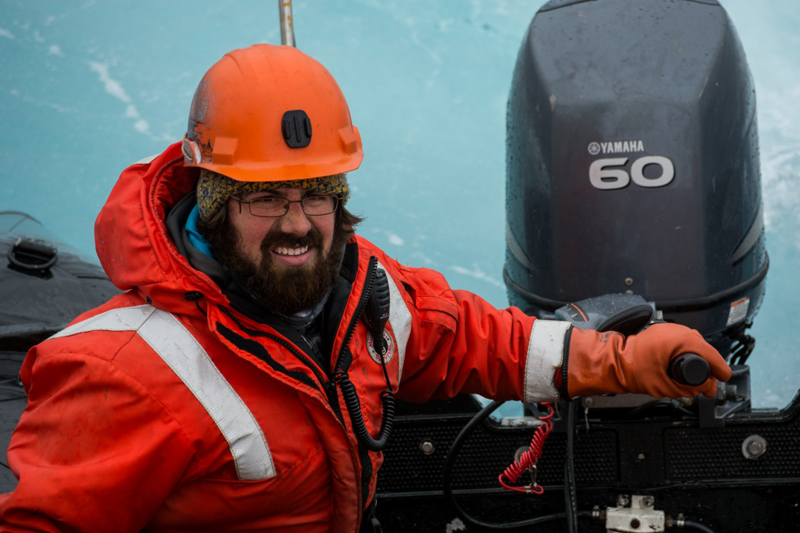
Photo Credit: Mike Lucibella
Marine tech Matt Lewis steers a small Zodiac inflatable raft loaded with supplies to penguin researchers at Cape Shirreff.
|

Photo Credit: Mike Lucibella
Marine techs bring penguin researchers to the small science camp at Cape Shirreff.
|
|














